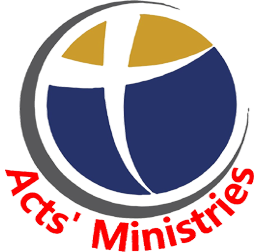A. Skills Training:
Several hundred BPL families benefitted through improved training in economic skills such as crafts /handicrafts (cloth embroidery, wall hanging arts and decorative items made out of fibre/beads/wood carvings), agro-processing units (fruit juices, jam making, pickles making, leaves plate making, honey production and other forest related products) etc. We have provided training on job oriented training such as driving, security guard etc. and placed several hundred personnel in industries and office premises locally as well as in big cities. For those literate school completed candidates, we have provided training in computer applications and sales and marketing skills.
B. Training on SHG Formation, Micro-credit and Business Promotion:
Several training programmes have been conducted for women to enable the formation of SHGs in 17 villages with a membership of more than 500 Members – majority women. Crafts/handicrafts related IGP schemes and other feasible rural schemes such as dairy, stall-fed goat rearing, petty shops, etc. were some entrepreneurship schemes taken up by the SHG members. The main benefits of micro-credit can be listed as: reduced vulnerability of the poor to adverse indebted circumstances, increased consumption in the same group, and empowerment of women. The major spin-off of the micro-credit movement at the grass-root level has been the fact that women have used this system to come out and join a mainstream activity in specially rural areas as has happened in our operational areas where we promoted SHGs. Women have also gained a voice and been able to use this space to come out of their traditional roles into a more ‘proactive’ male space. Women have been able to mobilize capital, and in the process have acquired skills that have enhanced their economic, social and political power.
C. Crafts/Handicrafts Exhibition/Sale Melas:
Sisters conducted several sale exhibitions in different clusters to promote the sale of products produced by the SHG members. Totally, 12 such events were conducted through which sales were promoted besides booking orders for further production. Some export companies have tied up with us for decentralised manufacture of feasible items which they will market both in India and abroad. 11 MOUs have been signed up with different companies for marketing of products of SHGs and local entrepreneurs. We have 11 master crafts trainers of whom 2 are men and 9 are women. These trainers conduct various skills building programmes in their region to upgrade the skills of SHG members. The Training covers various topics such as:
TRIBAL EMPOWERMENT & GENDER EQUALITY ROLES:
Majority of Sisters works areas fall under tribal concentrated belts. We felt that Tribal population in this region have been most neglected and exploited and accordingly we wanted substantial changes in their social and economic scenarios. Of special concern was the position of tribal women who were facing serious problems within their families and outside. We found several women headed households due to either desertion by husbands, or divorces or death of spouses. Lodhas, Santals are major tribals groups, the others being Lerka/Hoi, Bhumij, Kurmi, Mahali, Munda & Kora.
A. Training for Tribal Leaders:
We have conducted training for tribal leaders and volunteers (covering 210 persons selected from 30 villages). These leaders were trained on various basic topics of the importance of united families, various schemes / facilities given by Government Agencies, democratic decentralization and how genuine grass-root leaderships especially among women should be encouraged, the need for revamping PRI institutions to deliver goods and services to the common population channelizing all the govt. schemes. Separate training programmes were conducted for tribal women and men.
B. Formation of Tribal Forums:
Our training yielded grass-root level results. The local populations were organized into youth clubs, women’s associations and village development committees. These organizations were enabled to handle people’s issues. 200 rural youth and folk artists were engaged in this process of social awakening and collective action.
C. Socio-Economic Gains to Backward Sections including Tribals:
The local tribal forums initiated collective actions around various social issues such as lack of basic amenities, dwindling livelihoods, poor health facilities etc. Two tribal marches were organized to submit memorandum in two Blocks to BDOs. Gender issues got highlighted and women’s increased their role in tribal community development. Men’s dominance and control over women have come down in our operational areas. Men are allowing women space and encouraging them in various activities like SHGs. Marked decrease in women’s drudgeries has been noticed with more basic amenities made available such as safe drinking water, regular health check-ups and treatment, more inclusion of their children in schools and better roads etc. Social evils like dowry, child marriages and violence against women are coming down. Protection of forests and the need to acquire literacy skills too were highlighted in this process.
